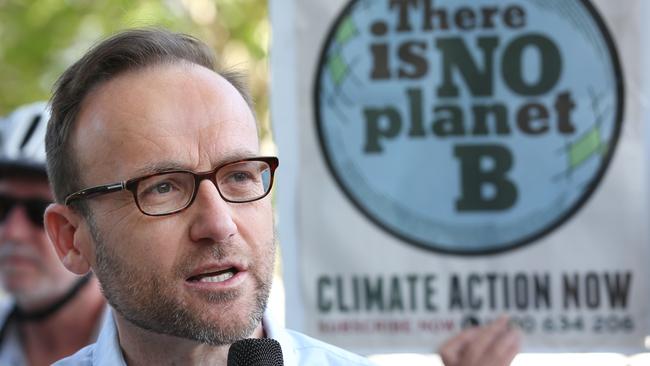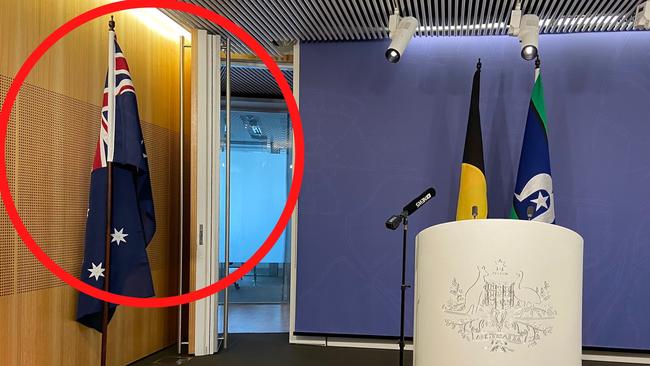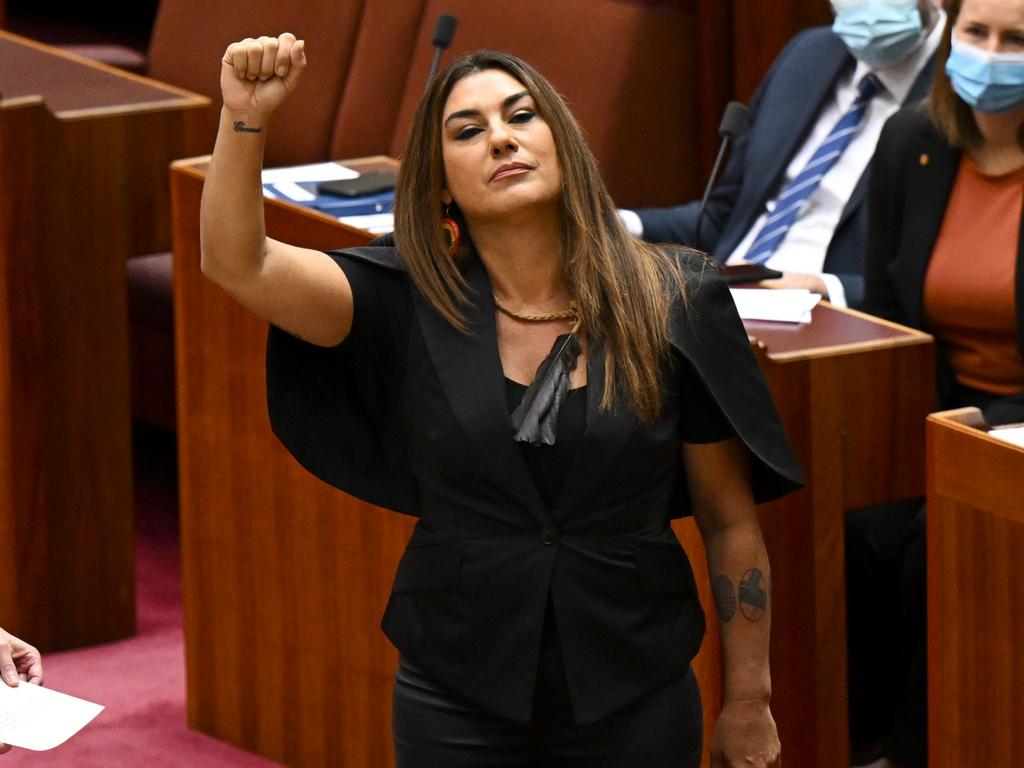
The Greens leader is building a false narrative in an effort to justify Greens’ blackmail and blockade in the Senate against majority wishes and to push for more radical agendas on climate change and the voice to parliament.
The Greens leader, denied a balance-of-power position in the House of Representatives and still not a clear balance-of-power party in the Senate, is building a myth about “mandate” to provide political relevance and protect the Greens’ enhanced standing after the election.
Essentially, Bandt is arguing that Anthony Albanese and the Labor government, and, of course, Peter Dutton and the Coalition opposition, do not have a public endorsement, a “mandate”, to deliver on election promises because their votes went “backwards” and are historically low.
Bandt has taken to citing Labor’s 32 per cent primary vote at the May 21 election, arguably its lowest in history, and the Liberal losses to argue that there is a national mood that is empowering the Greens with a record vote, four MPs and 12 senators.
Bandt says the rise in the Greens vote is justification for more radical agendas – a higher carbon emissions target by 2030 and an end to gas and coal projects on climate change, as well as going well beyond the promise of a referendum for the voice to parliament.
Climate change groups are picking up on the narrative and there is an increasing argument that the Prime Minister doesn’t have a mandate to implement his policies and must go further on cutting carbon emissions and a treaty with indigenous people.
This is piffle.
Bandt mixes contradictory arguments about primary vote and preference votes, denies the evidence of the election, pretends there is now a different measure to forming government and implementing policies and attempts to recruit “new politics” to expand the power of the Greens under threat from the left.
Albanese is alert to this hubris and has pointed out that government in Australia is decided by a majority of MPs in the House of Representatives and Labor had 77 MPs out of 151 elected on May 21.
The election also delivered 135 MPs representing Labor or the Coalition, four Greens and 10 independents. In the Senate, 15 Labor and Coalition senators were elected, six Greens, three minor parties and one independent taking the total in the Senate to 26 Labor, 32 Coalition, 12 Greens, two One Nation, two Jacqui Lambie, one United Australia and one independent.

Albanese has also responded to Bandt’s claims by pointing out that 77 Labor MPs were elected on the basis of a 43 per cent carbon reduction target by 2030 and a referendum on the voice to parliament.
On the Coalition side, 58 MPs were elected with a 2030 target of a maximum of 30 per cent and not all the independents supported a higher target so there was a primary vote for MPs of 67 per cent – two-thirds of Australia – supporting a maximum cut of 43 per cent by 2030.
Less than 10 per cent of MPs were elected on a policy of bigger cuts than 43 per cent.
Likewise, Labor MPs were elected with an undertaking to deliver on the voice and most Coalition MPs were at best ambivalent.
Yet Bandt argues for more radical agendas, supported by less than 10 per cent of the elected representatives, and that there is a mandate, which he denies the government, for these agendas.

Bandt also selects primary vote as his point of undermining Labor’s mandate but ignores that, while high for the Greens historically, it was only 12 per cent and no Greens candidate was elected on primary votes. In his seat of Melbourne, Bandt was elected on the preferences of the Liberal Party.
A rise within a minority vote does not take away the mandate of the majority nor give the Greens the right to dictate the agenda.








Adam Bandt is peddling a political fallacy and a statistical lie.